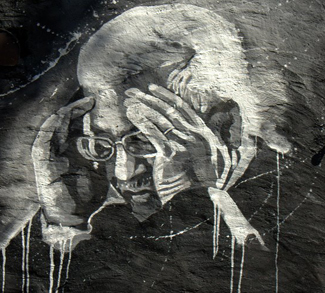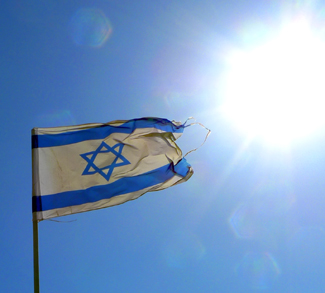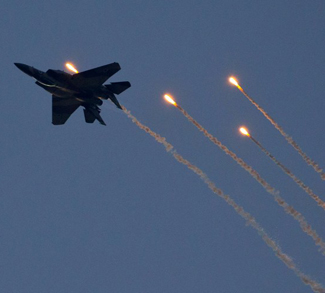Summary
Israel launches a post-Christmas war against Gaza, killing over 200 Palestinians in the first day alone. The intense aerial bombardment is the worst suffering the tiny and densely populated territory has faced in its 60-year history. Israel’s Defence Minister, Ehud Barak, has declared an “all-out war against Hamas”.
Analysis
A day after Christmas, Israel has launched a war against the Palestinian territory of the Gaza Strip, just days after the six-month ceasefire negotiated with Hamas ended, in an operation the Israeli ambassador to the UN describes as open-ended until Israel “destroys completely” Hamas, the democratically elected Palestinian ruling party.
Hamas has been in de facto control of the Gaza Strip ever since an American and Israeli-backed coup attempt by Hamas’ bitter rival, Fatah, failed miserably, splitting the Palestinian territories into two enclaves ruled by differing parties.
Since January, when Hamas won the Palestinian general election, Israel has blockaded the Gaza Strip, closing borders and isolating the tiny territory from the world, one of the most densely populated areas on the planet. The result has been a spiralling humanitarian crisis as Gazans have faced almost a year of deprivations, including access to basic necessities, due to Israel’s policy of collective punishment.
Yet, the current Israeli war on Gaza has more than just exacerbated the situation.
In the first day of air attacks, Israel killed 229 Palestinians, including scores of civilians, making it the single bloodiest day in the 60-year history of the territory. Israel claims that its air attacks are aimed at Hamas targets – however, many of Israel’s targets have been the civilian and family homes of Hamas members (a clear violation of international law). Further, most of the non-familial home buildings hit by Israel have, nonetheless, been civilian, not military targets, such as police stations, jails, party offices (including the offices of the Palestinian Prime Minister), government buildings, and universities. The United Nations Relief and Works Agency (UNRWA) released an initial figure of at least 51 confirmed civilian deaths amongst the Palestinians.
Yesterday, Israel began massing tanks on the Gaza border, and it has officially recalled thousands of reservists. Although analysts had predicted that Israel will be wary of re-entering Gaza three years after unilaterally ending its occupation of the territory, and after the bitter experience of the failed invasion of Lebanon in the summer of 2006, the tank movements and troop recall at least provide the Israeli military advanced positions for a ground assault against Gaza.
The war has ignited peace protests across the world, and especially anti-Israeli protests in Arab countries in the Middle East. In particular, Palestinians in the West Bank have begun to protest the Israeli attacks. This development, coupled with calls for a third Intifada (“uprising”) being echoed from Egypt to Lebanon to Iran, could spell danger the longer the Israeli operations continue.
Though the world has almost universally called for Israel to end the war, the United States and Canada stand practically alone in supporting Israel and blaming Hamas for Israel’s air assaults. According to U.S. Secretary of State Condoleezza Rice and Canadian Minister of Foreign Affairs Lawrence Cannon, Israel’s war is a defensive act and Hamas is responsible for the war because of its homemade rocket attacks against Israel.
Total number of Israeli’s killed by Hamas rockets since the end of the ceasefire: 1.
Total number of Palestinians killed by Israel since the end of the ceasefire: 290.
The death tolls will no doubt rise on both sides, if unevenly, in the next few days – sharply if Israel invades.
Manjit Singh is a contributor to Geopoliticalmonitor.com



